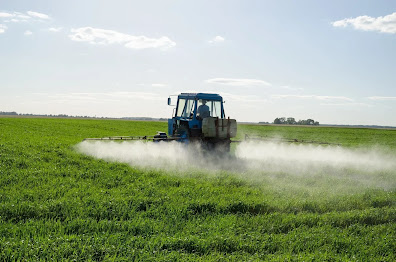The Great Gluten Mystery: Why Wheat Isn’t What It Used to Be🌾🥖
Not long ago, bread was considered the staff of life, wholesome, comforting, and a dietary staple. Now, more people than ever are dodging gluten like it’s an unwanted guest at the dinner table.
So, what changed? 🤔
Why are so many people suddenly intolerant to wheat?
Wheat today is not the same wheat your grandmother used for her legendary homemade bread. Over time, wheat has been selectively bred to produce higher yields, withstand different climates, and resist disease. While these advancements have helped farmers grow more food, they’ve also altered the gluten structure of wheat, potentially making it harder for our bodies to digest.
The Role of Pesticides & Chemicals
The Hidden Toll of Glyphosate
While it’s often discussed in agriculture, glyphosate’s presence in our food may be quietly affecting our health in ways we’re only beginning to understand. Here are some of the most studied long-term effects:
1. Potential Carcinogenic Risk
The debate over glyphosate's link to cancer is ongoing, but some studies, including those cited by the International Agency for Research on Cancer (IARC) suggest that prolonged exposure may increase the risk of certain cancers, particularly non-Hodgkin lymphoma.
2. Endocrine Disruption
Glyphosate has been found to interfere with hormone function, potentially affecting reproductive health, metabolism, and thyroid function. This could explain why some people experience unexplained weight changes, fertility struggles, or hormonal imbalances without a clear cause.
3. Gut Microbiome Imbalance
We know that gut health plays a massive role in overall well-being, but glyphosate has been shown to disrupt beneficial gut bacteria, which can lead to digestive issues, weakened immunity, and even mood disorders.
4. Neurological Concerns
Some researchers have explored a possible connection between glyphosate exposure and neurodegenerative diseases like Parkinson’s and Alzheimer’s. The theory? Glyphosate may contribute to inflammation and oxidative stress in the brain.
5. Kidney & Liver Toxicity
Long-term exposure has been linked to liver and kidney damage, which could be particularly concerning for those already managing chronic conditions or sensitivities.
Link to back up these facts➡️https://www.frontiersin.org/journals/toxicology/articles/10.3389/ftox.2024.1474792/full
Gut Health & The Gluten Connection
Even if wheat itself isn’t the sole culprit, there’s strong evidence that gut health plays a major role in food sensitivities. The modern diet, high in processed foods, artificial additives, and sugar, can weaken the gut lining, leading to conditions like leaky gut syndrome, which can make people more sensitive to gluten.
So, What’s the Solution?
Final Thoughts💭
Is wheat to blame for the rise in gluten intolerance, or is it how we’ve altered it through farming and processing? The answer is likely a mix of both, with environmental factors playing a bigger role than we once thought.
While gluten-free diets have exploded in popularity, understanding why so many people struggle with modern wheat helps put the issue into perspective. The next time someone asks why gluten intolerance seems more common today, you’ll know exactly where to start.
My Experience
At first, I didn’t think much about the sudden surge in gluten-free diets. It seemed like just another health trend, like keto or intermittent fasting. But the more I heard about people struggling with unexplained gut issues, brain fog, and inflammation, the more I started to wonder, was there something bigger at play?
What I found shocked me. The way wheat is grown, processed, and consumed today is vastly different from what past generations ate. It started making sense why so many people, whether diagnosed with celiac or simply feeling off, were cutting gluten out of their diets.
I don’t believe everyone needs to be gluten-free, but I do believe people should be aware of how wheat has changed and how it might be affecting their health. That’s why I wanted to write this post, not to convince anyone to ditch gluten, but to share the knowledge I wish I had years ago. If this information helps even one person connect the dots in their own health journey, then it’s worth talking about.
- Is Modern Wheat Behind the Rise in Gluten Intolerance? – A study comparing wheat varieties over 120 years, examining changes in gluten composition.
- Gluten in Wheat: What Has Changed During 120 Years of Breeding? – Research on how wheat breeding has altered gluten proteins and their potential impact on health.
- Gluten Intolerance – The Problem with Modern Wheat – An article exploring how wheat processing and farming methods have contributed to increased sensitivities.






